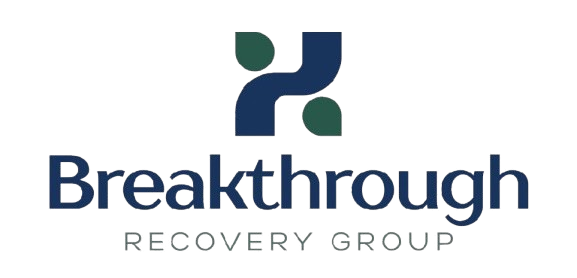
The Significance of Rehabilitation Facilities
As a community-focused organization in Spokane, we are acutely aware of the profound impact that rehabilitation facilities can have on individuals and families. These centers serve as sanctuaries, offering crucial support to those confronting substance abuse and mental health challenges. While it is often said that healing is a journey, having access to specialized rehab Spokane WA centers can make all the difference along that path.
Rehabilitation is not merely about overcoming addiction; it is about transforming lives and rebuilding them from the ground up. I have witnessed, time and again, the resurgence of hope and strength in those who sought help in these facilities. The right center, with its supportive environment and holistic approach, can empower individuals to reclaim their lives and build a brighter future.
Personalized Treatments in Rehabilitation
At BTRG Spokane, we believe in the power of personalized treatment plans. Each individual’s journey is unique, requiring tailored approaches that address the specific needs and challenges they face. From cognitive-behavioral therapy to family counseling, an array of techniques are employed to ensure comprehensive care.
Our team of therapists collaborates closely with clients to craft these personalized plans, drawing from evidence-based strategies that have been shown to yield positive outcomes. This collaborative process not only enhances the effectiveness of the treatment but also fosters a sense of agency and empowerment among clients.
We strive to create a supportive and trustworthy atmosphere where clients feel safe to explore their vulnerabilities. By building trust, we lay the foundation for genuine healing and transformation.
The Role of Family and Community
In the realm of rehabilitation, the support of family and community is indispensable. Families often play a pivotal role in both the recovery journey and the prevention of relapse. Acknowledging this, we encourage family involvement in the therapeutic process and provide resources to help them support their loved ones effectively.
Community support also extends beyond the clinic walls. As part of the larger Spokane community, we work to raise awareness, reduce stigma, and build networks that facilitate ongoing support for individuals post-rehabilitation.
Emphasizing Inclusivity and Diversity
One of the cornerstones of our philosophy at BTRG Spokane is inclusivity and diversity. We pride ourselves on welcoming clients from all walks of life, regardless of their background. Our diverse team of professionals is trained to be culturally sensitive and inclusive, ensuring that every individual receives respect and understanding.
This commitment to diversity enhances the therapeutic environment, making it more dynamic and rich with varied perspectives. Inclusivity is not just a policy; it is a practice that we uphold daily, believing that everyone deserves the chance to embark on their recovery journey without judgment or prejudice.
Mental Health and Emotional Well-being
Rehabilitation is interlinked with mental health and emotional well-being. Conditions such as anxiety, depression, and trauma often accompany substance abuse, necessitating a dual approach to treatment. Addressing these underlying mental health issues is paramount to achieving long-term recovery.
At BTRG Spokane, we incorporate mental health services into our rehabilitation programs to provide a holistic treatment experience. Our therapists are skilled in various modalities, including trauma-informed care, to address the multifaceted nature of recovery.
The Benefits of Evidence-Based Practices
Evidence-based practices form the backbone of our rehabilitation services. By utilizing scientifically validated methods, we ensure that our clients receive the most effective care available. Approaches such as Cognitive Behavioral Therapy and Dialectical Behavior Therapy are cornerstones of our therapeutic offerings.
Evidence-Based Practices We Employ:
- Cognitive Behavioral Therapy (CBT)
- Dialectical Behavior Therapy (DBT)
- Motivational Interviewing
- Family Systems Therapy
These methods are integral in transforming lives, allowing individuals to develop new coping strategies and healthier behavioral patterns. Clients often report feeling more equipped to handle life’s challenges after engaging in these therapy sessions.
Residential vs. Outpatient Treatment Options
Choosing between residential and outpatient treatment is a crucial decision for those seeking rehab Spokane WA services. Residential programs offer intensive, 24/7 care, which is essential for individuals facing severe addiction. This immersive environment facilitates a focused recovery process, away from daily distractions and triggers.
On the other hand, outpatient programs provide flexibility, allowing clients to continue their daily activities while attending therapy sessions. This option can be particularly beneficial for those with less severe addiction or those transitioning from a residential program.
The choice between the two depends largely on the individual’s needs and personal circumstances. Our role at BTRG Spokane is to guide clients in making informed decisions that best support their recovery goals.
Tools and Resources for Long-term Recovery
Sustaining recovery requires more than just initial treatment; it demands ongoing support and appropriate resources. We provide clients with tools to strengthen their resilience and prevent relapse, including workshops, support groups, and continued therapy sessions.
Resources for Sustained Recovery:
- Peer Support Groups
- Relapse Prevention Workshops
- Alumni Programs
- Continuous Access to Therapy
These resources play an essential role in transitioning clients back into their daily lives while maintaining sobriety. Peer support can also be remarkably motivating, as shared experiences often reinforce the commitment to recovery.
BTRG’s Commitment to Professional Development
Our dedication to professional development is unwavering. We ensure that our therapists and staff are continually trained in the latest therapeutic techniques and industry best practices. This commitment ensures that we deliver the highest standard of care to those seeking rehab Spokane WA services.
We foster a culture of learning and growth within our organization, encouraging our team to stay informed about new advancements in rehabilitation and mental health care. This continuous professional development enables us to adapt and improve our services in line with evolving patient needs and expectations.

What is the importance of rehabilitation facilities in Spokane, WA?
As a provider deeply integrated within the Spokane community, we have seen firsthand how rehabilitation facilities can serve as key pillars in transforming lives. These centers offer not only a structured environment for recovery but also the emotional and mental support needed to tackle substance abuse and mental health challenges. Imagine an individual who has been struggling for years with addiction; stepping into a rehab facility can be their first move towards regaining control over their life. The holistic approach and specialized care found in these centers are crucial for fostering hope and resilience. If you or a loved one are considering seeking help, what aspects of a rehabilitation facility are most important to you?
How do personalized treatment plans enhance recovery outcomes?
At BTRG Spokane, we believe that personalized treatment is the cornerstone of effective rehabilitation. Each person’s journey is unique, and by crafting tailored plans, we can address specific challenges and needs. For instance, someone might benefit more from Cognitive Behavioral Therapy, while another might find strength through family counseling. This individuality in care promotes a sense of ownership and empowerment in clients. By engaging in a collaborative treatment planning process, clients often feel more connected to their recovery journey. Have you ever considered how personalized care might change your perspective or experience with therapy?
How do family and community support impact recovery?
The role of family and community cannot be overstated in the recovery process. Families provide an essential support system, often helping to prevent relapse and reinforcing positive behaviors. In Spokane, we encourage families to partake actively in the rehabilitation process through counseling and support resources. Moreover, community involvement helps break down stigma and fosters a network of ongoing support. Consider how the love and understanding of a family member have influenced your life decisions. Who could you rely on as a supportive figure in challenging times?
Why is inclusivity important in rehabilitation services?
Inclusivity is a fundamental value at BTRG Spokane. We welcome clients from all backgrounds, ensuring that everyone receives the respect and understanding they deserve. This commitment to diversity enriches the therapeutic environment, offering varied perspectives and fostering empathy. Picture a diverse room filled with individuals from different walks of life, each contributing their experiences towards mutual healing. Such an environment can be powerful and transformative. How do you think diversity can impact personal healing or growth?
What is the significance of addressing mental health in rehabilitation?
Mental health is intricately linked with substance abuse, often underpinning the challenges faced during recovery. At BTRG Spokane, we integrate mental health services into our programs, recognizing the importance of a dual approach. Addressing issues like anxiety or trauma alongside addiction can lead to more sustainable recovery outcomes. Imagine tackling both a physical wound and the emotional pain associated with it at the same time–it’s a comprehensive healing process. What mental health challenges do you think are most commonly overlooked in addiction recovery?
How do evidence-based practices contribute to effective treatment?
Employing evidence-based practices ensures that we are providing care grounded in scientific research and proven efficacy. Techniques like Cognitive Behavioral Therapy and Dialectical Behavior Therapy are standard at BTRG Spokane because they have shown significant results in transforming lives. These methods offer clients actionable strategies for developing healthier behaviors and coping mechanisms. When you think about scientific research, do you trust it to guide decisions about your health? Why or why not?
What are the differences between residential and outpatient treatment?
The choice between residential and outpatient treatment is pivotal and depends on personal circumstances. Residential treatment offers intensive, round-the-clock care, which can be life-changing for those with severe addictions. Outpatient treatment, however, allows for flexibility, letting individuals maintain daily responsibilities. At BTRG Spokane, we guide clients in choosing the best option for their recovery goals. Reflect on a time when a life decision required a balance of intensity and flexibility–how did it shape your outcome?
What tools and resources support long-term recovery?
Long-term recovery extends beyond initial treatment, necessitating ongoing support. At BTRG Spokane, we provide tools like peer support groups, alumni programs, and continued therapy sessions to foster resilience. These resources help individuals transition back into daily life while maintaining sobriety. Imagine running a marathon; the training doesn’t stop at the finish line. Similarly, recovery requires continual effort and support. What strategies or resources do you find essential for achieving long-term goals?
How does professional development improve rehabilitation services?
Continuous professional development ensures that our team is equipped with the latest therapeutic techniques and knowledge. At BTRG Spokane, we prioritize this growth to deliver the highest standard of care. Investing in our staff’s education translates to better outcomes for clients, keeping them aligned with cutting-edge approaches. Consider the difference between learning from a well-read teacher versus one with outdated methods–how much impact do you think education has on service delivery?
Resources
- Substance Abuse and Mental Health Services Administration (SAMHSA) – SAMHSA is the leading government agency tasked with improving the behavioral health of the nation. They provide resources, treatment locators, and information on substance abuse and mental health.
- National Institute on Drug Abuse (NIDA) – NIDA is a research agency that focuses on the science of drug use and addiction. Their website offers valuable information on drug abuse, treatment options, and research findings.
- American Psychiatric Association (APA) – The APA is a professional organization representing psychiatrists in the United States. Their website provides resources on mental health, treatment guidelines, and psychiatrist directories.
- National Alliance on Mental Illness (NAMI) – NAMI is a grassroots mental health organization offering support, education, and advocacy for individuals and families affected by mental illness. Their website provides resources on various mental health conditions and treatment options.
- National Institutes of Health (NIH) – The NIH is the largest biomedical research agency in the world. Their website offers information on a wide range of health topics, including mental health and substance abuse.




